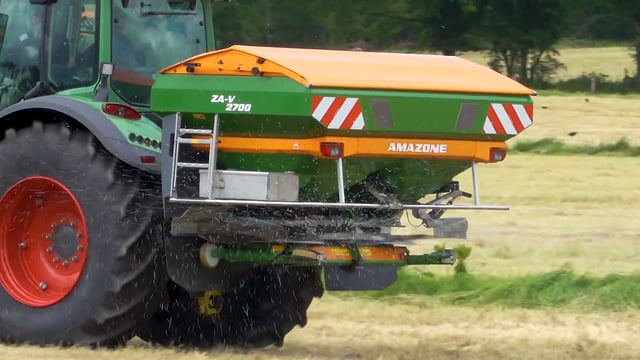Sponsored Article
Transforming pig thrive on Telford family farm
Sponsored Article

Derek Telford and his sons, Keith and Arnold, run a successful farrow-to-finish unit in Co. Tyrone, but towards the end of 2020 they became aware of a sudden drop in performance.
“We noticed a real change in the pigs, they were just not thriving,” Keith explained.
“It seemed to be affecting the pigs around five weeks post-weaning, with a lack of weight gain and loose dung.
"But the real problem was with the finishers," he said.
"They were eating but not gaining, pale and sickly, and we were seeing up to 10% mortality. The problem just seemed to get worse and worse into the start of 2021.”
Their vet, Paul Spillane from Moss Vet, performed up to a dozen post mortems of affected pigs of all ages. The initial diagnosis was of ileitis, which was later confirmed by laboratory tests.
“Once we were sure what we were dealing with, I was able to work with the team in putting together both a treatment plan and a prevention plan for the Lawsonia infection,” Paul explained.
“The causes of scour in pigs can be quite tricky to diagnose, so it’s a good idea to get your vet involved early if you’re at all concerned.”
Illeitis
Ileitis is a gastrointestinal disease affecting growing pigs and caused by the bacteria Lawsonia intracellularis. In Ireland, Ileitis is usually seen in pigs from 10 to 12 weeks of age, often in the second stage weaners.
While it may cause scour or loose faeces, the Lawsonia bacteria causes inflammation and thickens the gut wall, even in the absence of diarrhoea.
Unlike short-term bacterial gut infections, part of the ileum becomes permanently damaged, causing long-term reduction in food absorption.
Consequently, feed conversion rates and average weight gain are lower for the rest of the pig’s life.
The Telfords worked together with Paul and nutritionist, Ultan Keady from Cargill, to tackle the problem. An initial course of in-feed medication helped to control the problem and performance began to stabilise.
Around 4-6 weeks later, they began to vaccinate against ileitis with Porcilis Lawsonia. The vaccine has been proven to reduce diarrhoea, loss of daily weight gain, intestinal lesions, bacterial shedding and mortality caused by Lawsonia intracellularis infection and offers 21 weeks immunity to growing pigs.
The Telfords administer the vaccine at around three weeks of age, mixed with another vaccine, Porcilis PCV M Hyo.
“The improvement was like the flick of a light switch,” Keith said.
“We saw a total transformation throughout the unit, but in particular we saw mortality drop right back down to less than 1%.”
Zinc
The farm had been using high levels of zinc oxide, even in the grower feed, but since tackling the Ileitis problem it has been possible to remove it completely from the weaner diet and reduce levels right down in the creep and link.
Alongside other changes to feed and nutrition, the family plan to remove zinc completely in the coming months.
“We no longer have those narrow, uneven pigs and you can tell by looking that they’re doing well, and we’ve also seen the number of days to slaughter reduced. The results just speak for themselves,” Keith added.
“It’s all definitely working now.”
Clare Murray, who recently won Pig World’s Stockperson of the Year award, runs the farrowing houses on Telford’s farm and also has her own contract finisher house. She monitors production statistics closely and since tackling the ileitis outbreak, she has seen a huge improvement, with a weaning to sale feed conversion rate (FCR) of 2.25 and weaning to sale average daily weight gain (ADWG) of 880g and above.
“It’s great to know that by giving those pigs a good start, they’re able to achieve their potential. By measuring what we’re doing we can see what’s working well,” she said.
Transforming pig thrive
Nutritionist Ultan Keady is also impressed.
“When we started working with the Telford Team in the second half of 2020, we could see that there was exceptional work ethic and attention to detail on the farm," he said.
"This was evident in the sow performance. However, we noticed some issues in the growing herd, so a root and branch approach was implemented from weaning.
"Once the nutrition and health (in this case ileitis) were tackled we were able to get to work on reducing zinc and maintaining and improving weight gain. The unit is a completely different picture today. Credit to Derek, Keith, Arnold and the Team.”
Further information is available from your veterinary practitioner or MSD Animal Health, Red Oak North, South County Business Park, Leopardstown, Dublin 18, Ireland.
MSD Animal Health can be contacted at: 01 297 0220, or emailed at: [email protected].
Alternatively, to learn more, go online by clicking here.
Sponsored Article






